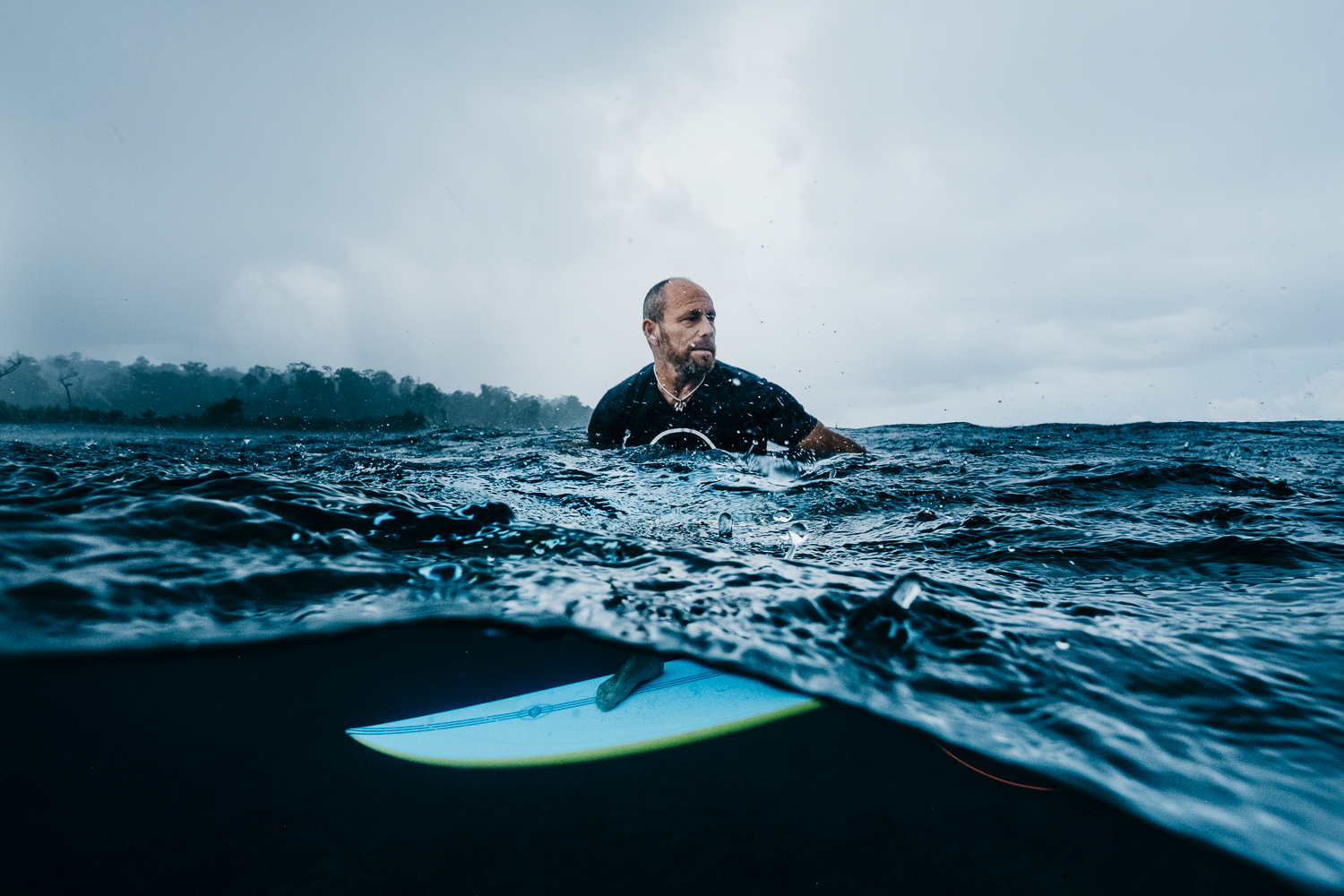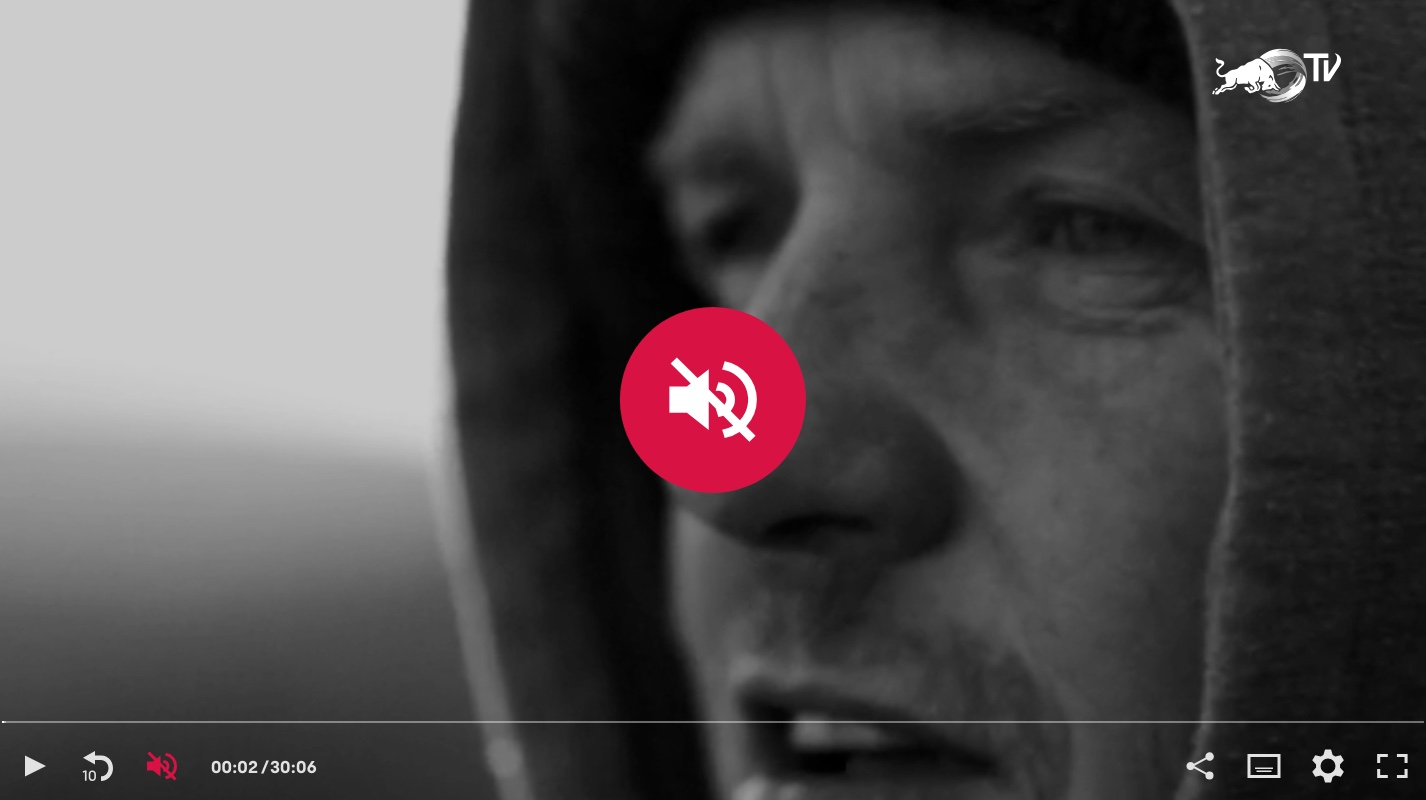Interview with Russell Ord, Award-winning Ocean and Lifestyle photographer
Hi Russell! First of all we would like to say that it is a great honor to have you for this interview. Would you like to start by making a brief introduction to Fuji X Passion readers?
Thank you very much for having me Fuji X Passion. I am a full-time photographer based in Margaret River Western Australia with my beautiful wife Catherine and three amazing kids, Kalani, Tavian and Ayla.
How it all began? Your relationship with Surfing, with Photography and finally, how did you put the two together?
I injured my knee surfing (1999), and instead of just sitting on the lounge I picked up a camera and started taking photos of my mates (surfing). The passion grew from there, surfing had become quite competitive and crowded so being reunited with that feeling of freedom especially when your swimming out alone was more of an incentive than jostling for waves. The learning curve was steep especially at the start being self-taught and using film, so I gradually progressed my camera skills, and I was lucky enough to have 20 years of ocean experience to call upon which I have always said is the hardest skill to learn regarding surf photography. At the moment it’s all reversed again with most of my time spent in the ocean would be surfing with the occasional swim with the camera.
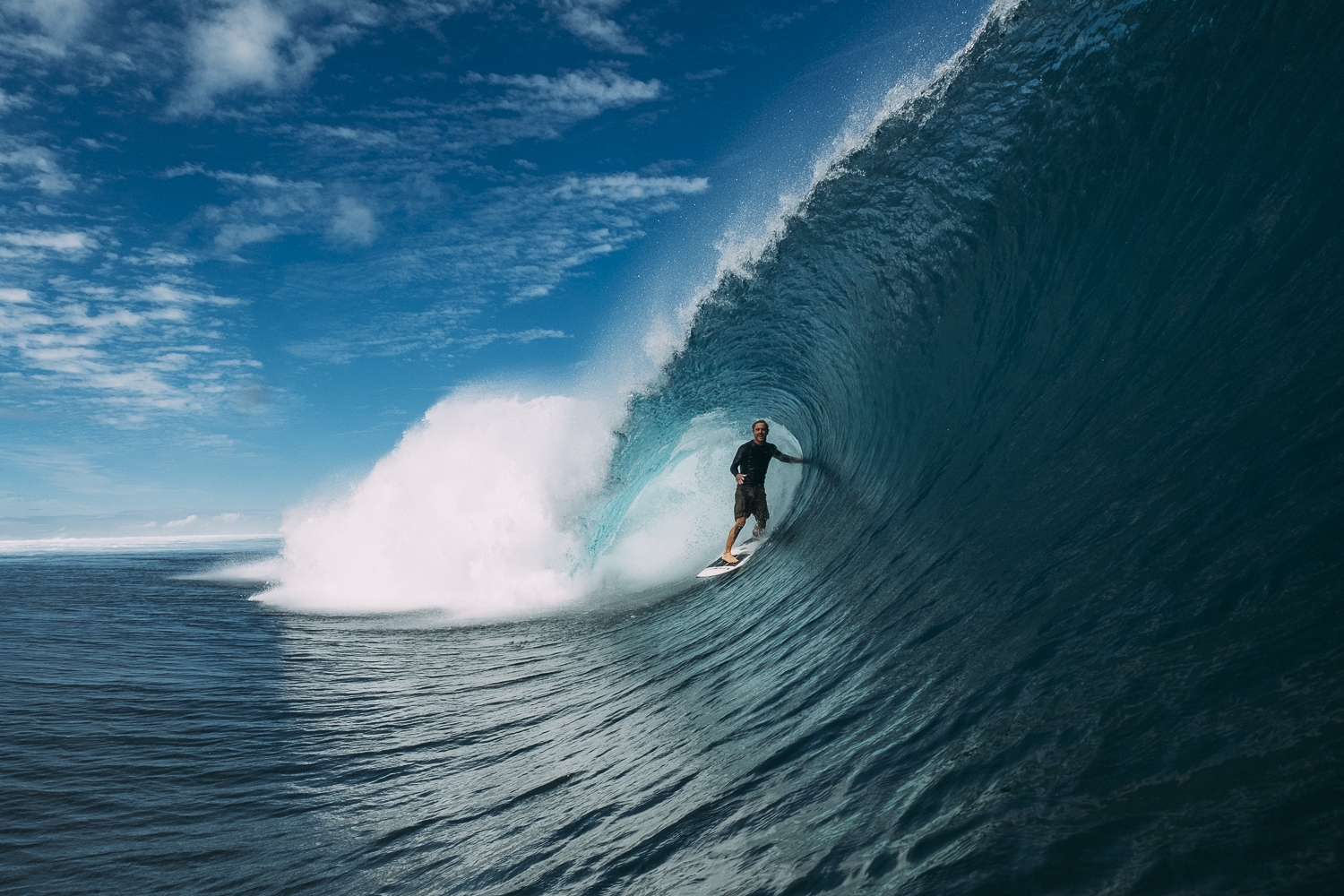
Fuji X-T2 . Fuji XF10-24mmF4 @10mm . f/8 . 1/1600″ . ISO 400
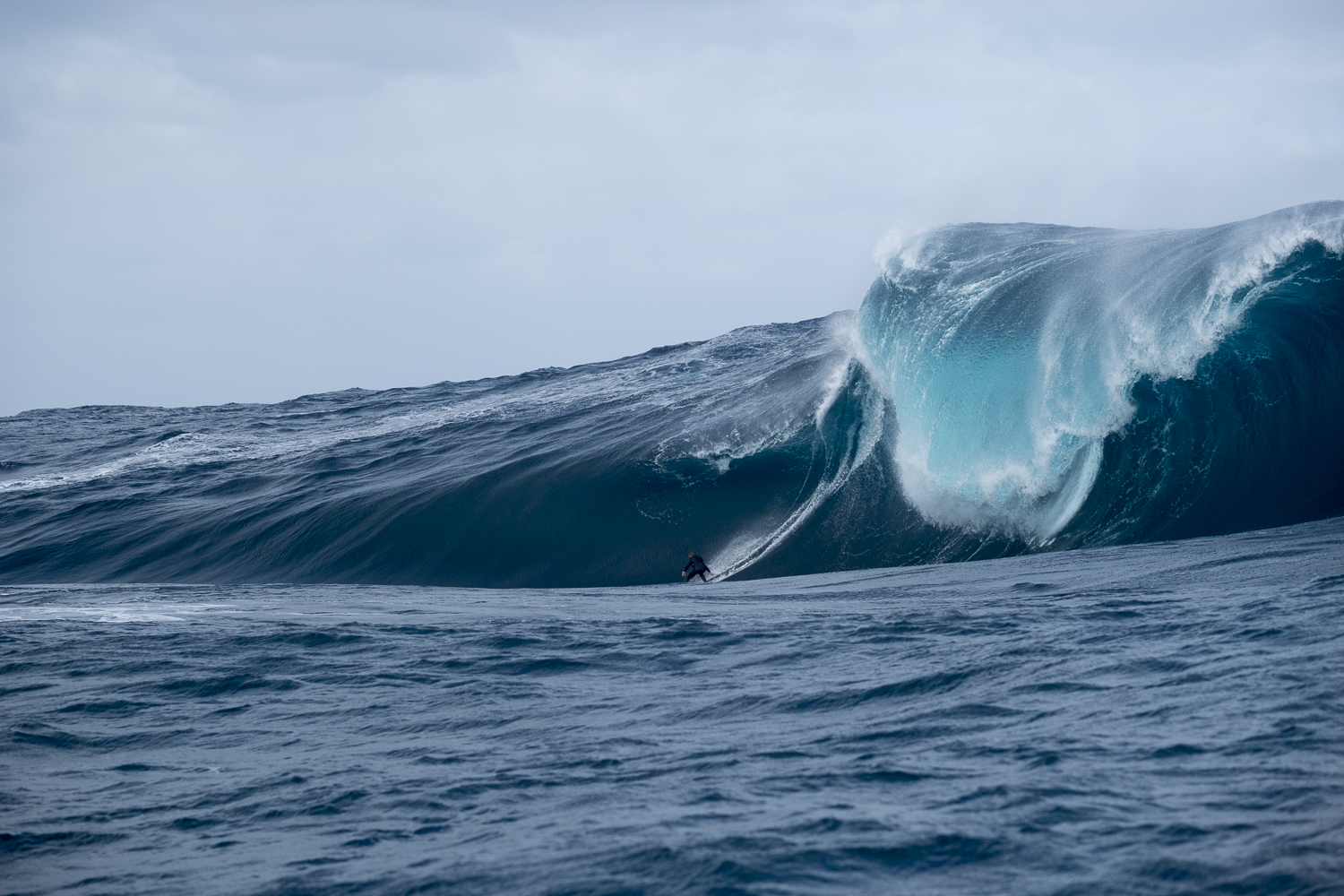
Fuji X-T2 . Fuji XF50-140mmF2.8 @77,30mm . f/3.6 . 1/1600″ . ISO 200
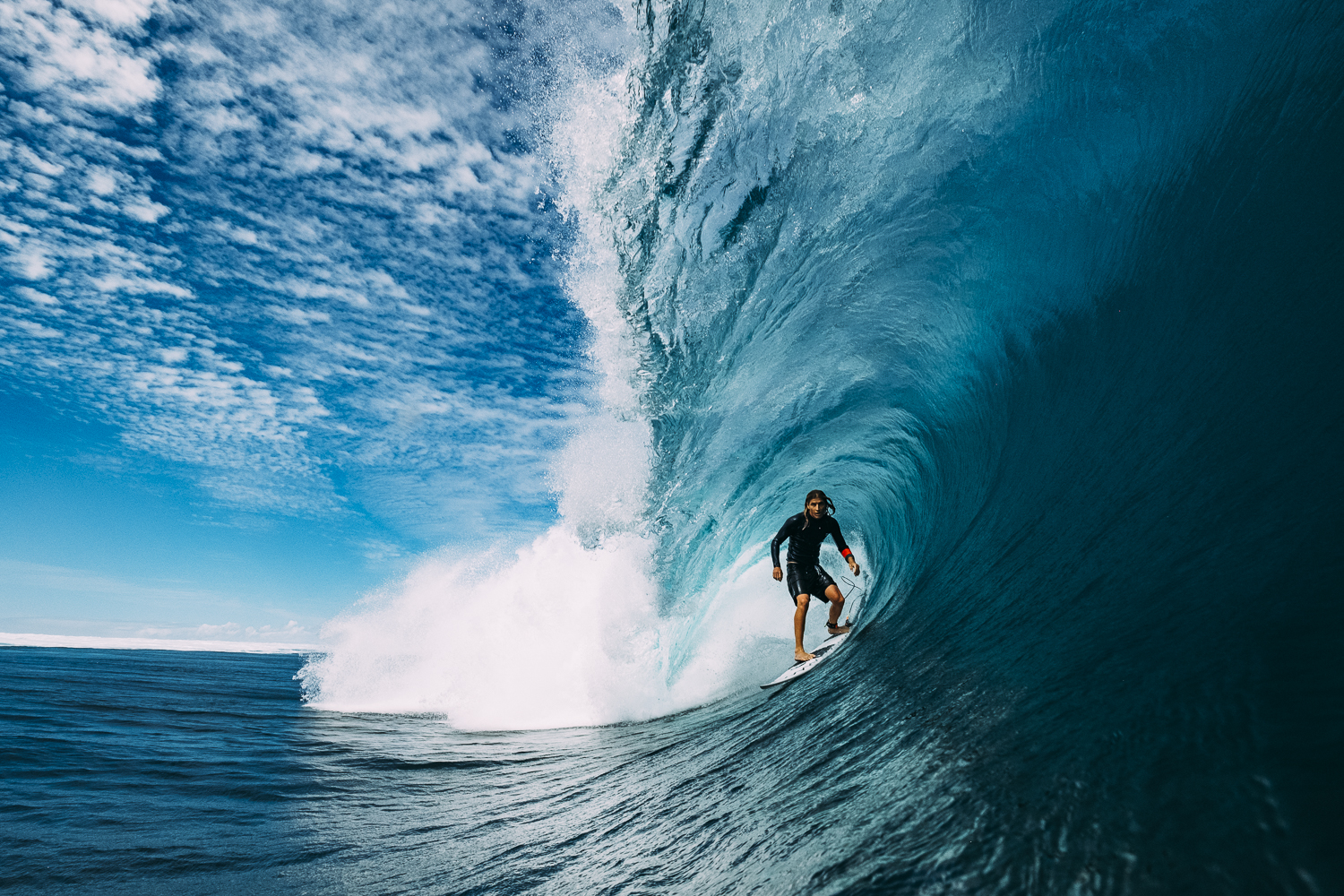
Fuji X-T2 . Fuji XF10-24mmF4 @10mm . f/8 . 1/2500″ . ISO 800
From the moment that your career as a surf photographer was progressing and getting more and more demanding, you had to make a choice between Photography and your job, right? Was it easy to make the decision?
It was a very tough decision to give up a job that I enjoyed (fire and rescue) and make photography my full-time work. On the one hand I had a rewarding career that paid the bills every week and on the other photography gave me a sense of freedom and creativity that the fire brigade could not provide. I have always said to my kids if you put in 100% and it does not work out it’s not a failure, it’s a life lesson to take in the future, all I had to do in the end is listen to my advice, actions are louder than words.
Being a Firefighter, could we say that you feel attraction for everything that involves danger? 🙂
I don’t see it as dangerous, I see it more as a calculated risk based on skill level, knowledge, training for different scenarios, experience etc. I take that same mindset into my surf photography, especially when swimming in larger seas. My good mate always says “you don’t become a black belt overnight” it’s great advice when you apply it to what some people may consider dangerous situations.
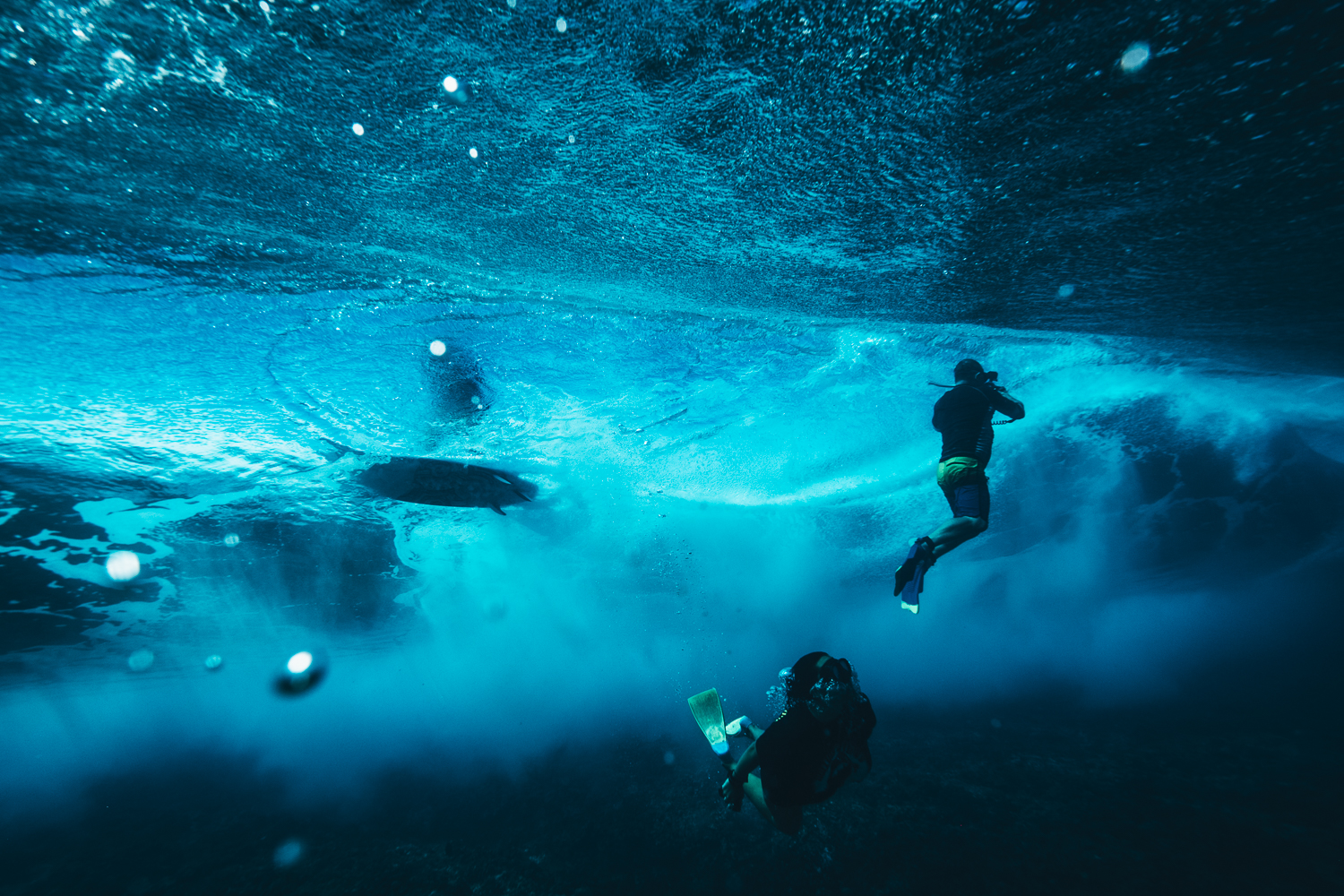
Fuji X-T2 . Fuji XF10-24mmF4 @11mm . f/8 . 1/800″ . ISO 400
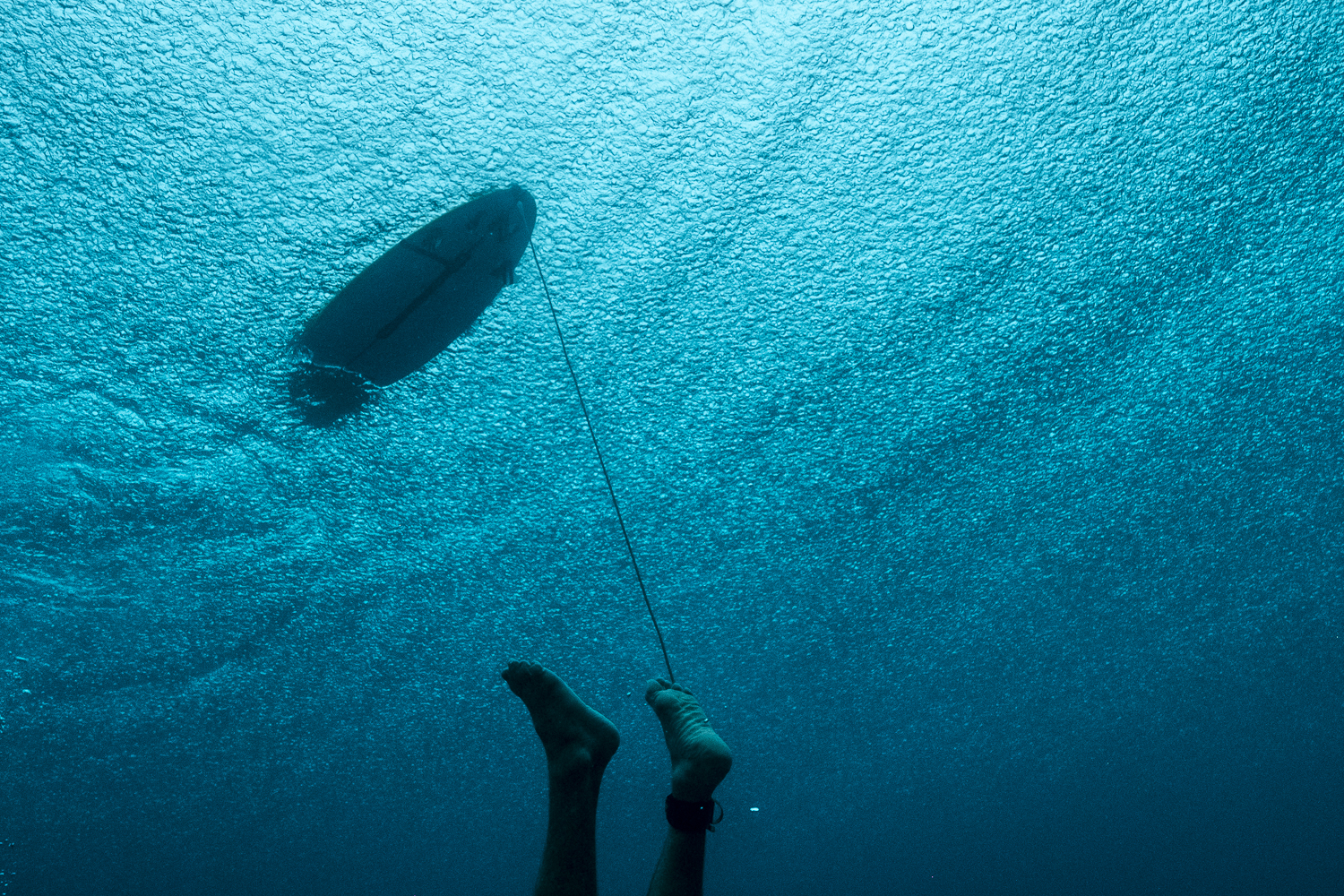
Fuji X-T2 . Carl Zeiss Touit 12mmF2.8 . f/8 . 1/250″ . ISO 800
What moves you to go further, to get that photograph that no one else has accomplished? Is it a matter of overcoming the other photographers or, more than that, of overcoming yourself?
It’s all about my own journey and what I would like to achieve and how I see my work, I only ever compare my present self with my past self and how can I challenge myself not only to be a better photographer but an all-round better person. I get the occasional message from photographers (surf) asking for tips on how to shoot water images at crazy spots, these same photographers are not putting in the ocean time, they have no experience/knowledge to call upon, its life threatening to say the least and one they should ask themselves “why” and if that answer is not entirely personal you’re doing it for the wrong reasons.
Have you ever had those moments when you thought you wouldn’t come home alive?
Not at all, I consider myself very calculated and if I sense there is to much risk for my skill level/experience I will decide to give that type of photo a miss. I have been to many deaths while in the fire brigade, and that taught me how your life could change in the blink of an eye, I want to experience so much more in life and watch my kids experience – it’s all about living.
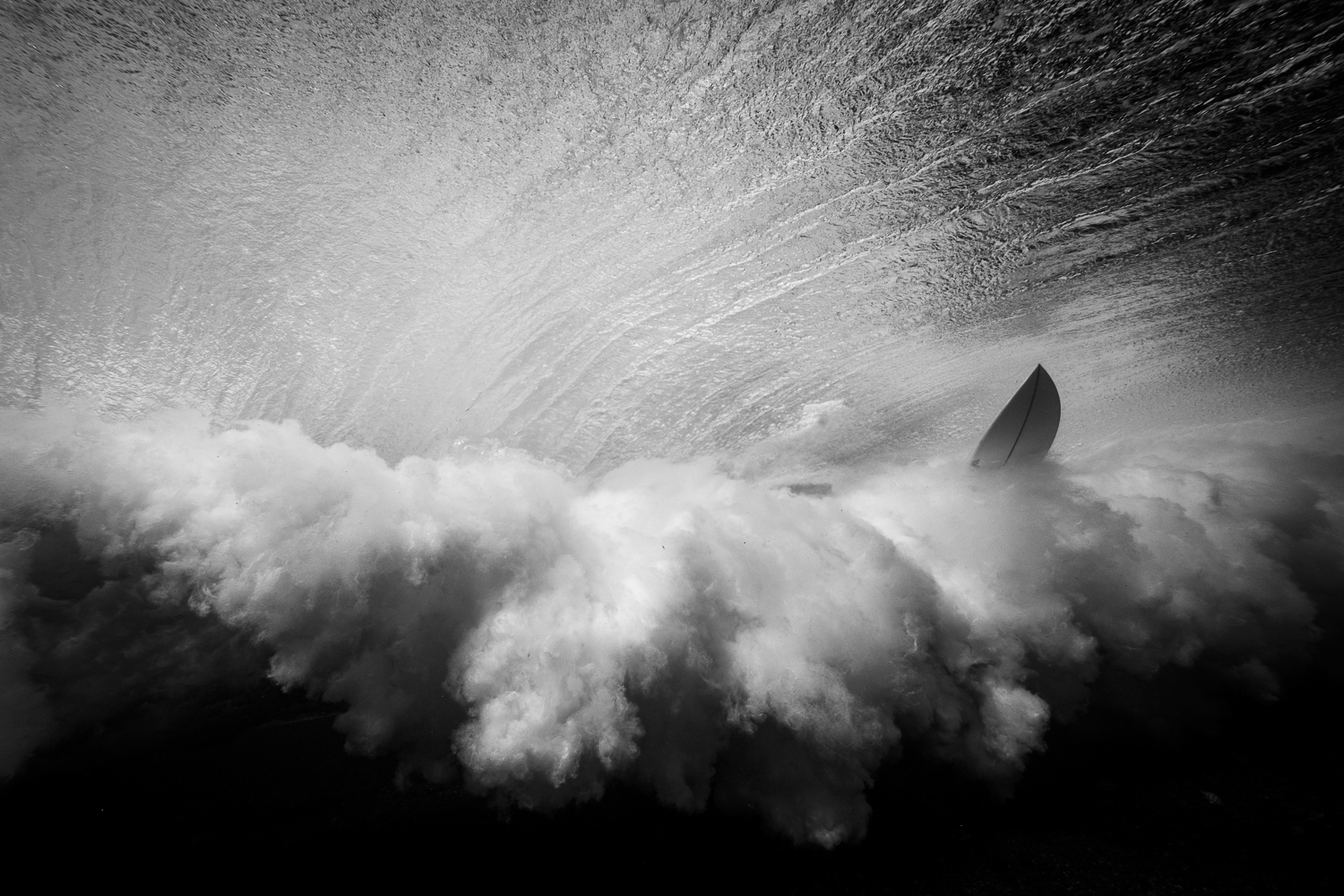
Fuji X-T2 . Fuji XF10-24mmF4 @10mm . f/8 . 1/1250″ . ISO 800
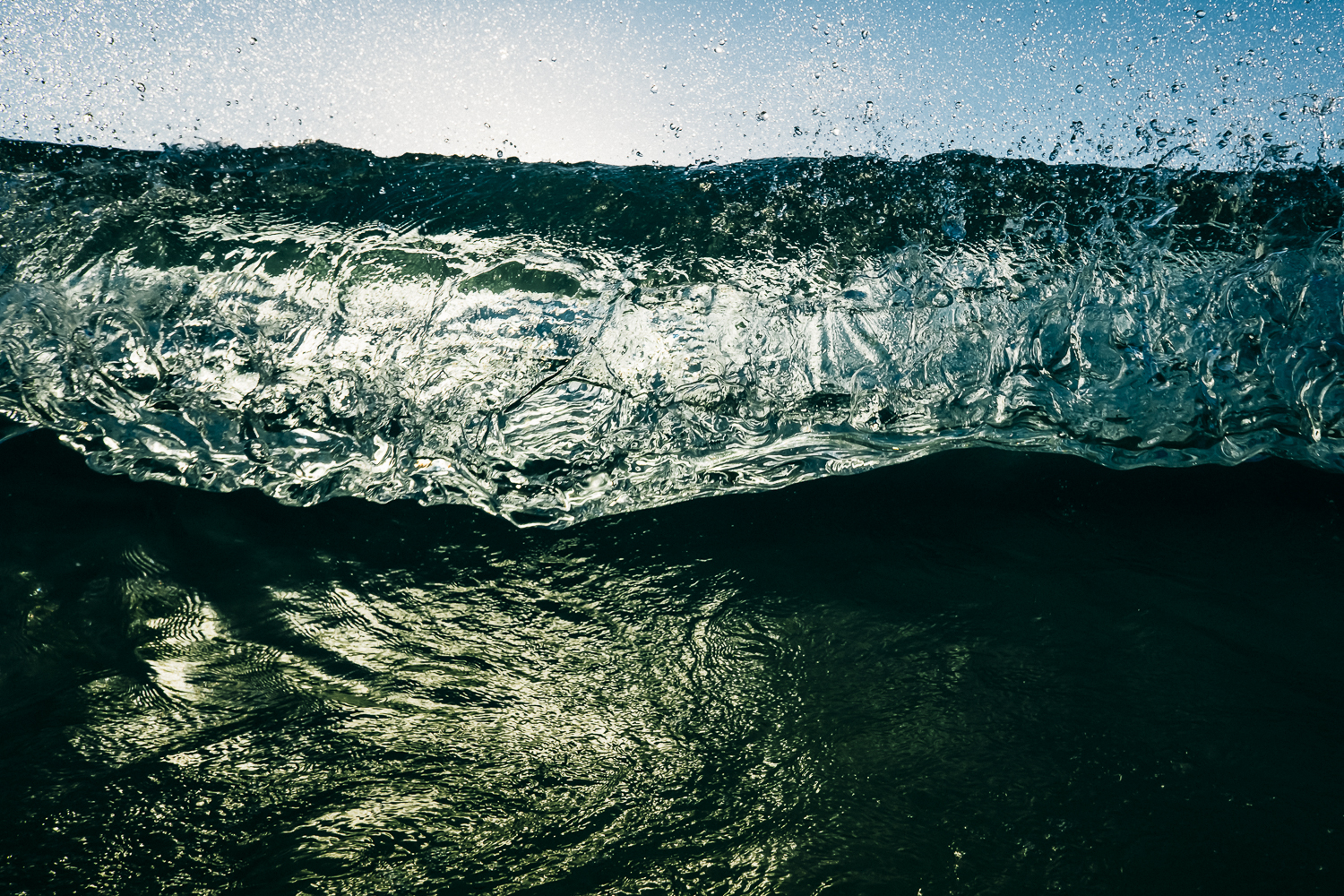
Fuji X-H1 . Carl Zeiss Touit 12mmF2.8 . f/5.6 . 1/2000″ . ISO 200
What makes a good photograph, the moment, the framing, the expression, the light or is it something that can not be translated into a simple sum of factors?
It’s all about the skill level and what goes into capturing those images before the actual moment in time. I feel people including photo editors, photo competitions, judges etc. never take this into account. As an example: How could you compare an image taken by an accomplished mountain climbing photographer with a photograph taken by a drone, both very amazing moments in time captured exceptionally well. One image took 15 years of experience to be in that position to press the trigger the other, well will all know how easy it is to fly a drone, the drone image won that particular photo competition judged by accomplished judges.
Another example: Eight or so years ago I picked up a photo magazine while waiting for my morning ritual coffee “Top twenty wildlife images of the year”. Each photographer is interviewed on the backstory of their image and how they went about capturing their award-winning photos. What a read, hiding in trees for days, avoiding grizzly bears, hyperthermia, heat exhaustion, equipment losses, three years in the making, etc.etc. The number one image, the numero uno, a photo of a Bengal Tiger coming out of the water shaking its head, dispersing water as it majestically leaves the pond, the photographer shoots a speed blur giving the tiger a perfect ring of water, absolutely mindboggling.
The description starts with 1/30sec at F5.6, 600mm, and then that’s when I felt a massive kick in the guts for every other photographer in that competition, please tell me you so called respectful photographers/judges how do you award first place to a wildlife photo (once again shot incredibly well) that was taken in a Zoo. Did you not read where and what the other photographers went through to produce such imagery, do you not take this into account when making the judgement. I can only imagine the first placed photographer in a nice comfy fold out chair, feet up under an umbrella sipping iced lemonade with a squeeze of lemon while getting handfed fresh strawberries (ok that’s going too far). So to answer your question again “It’s all about the skill level”!
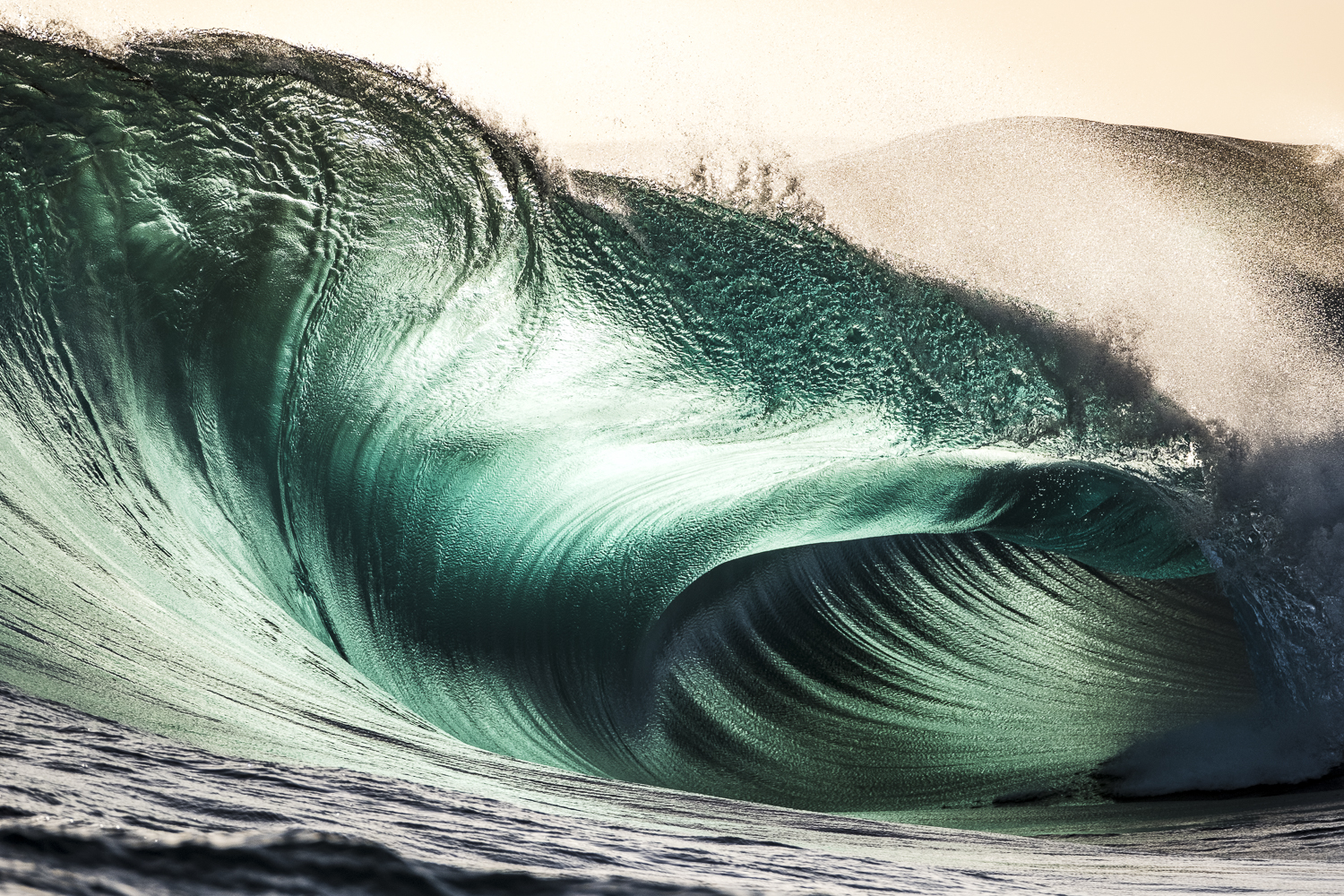
Fuji X-T2 . Fuji XF100-400mmF4.5-5.6 @261,20mm . f/5.6 . 1/3200″ . ISO 400
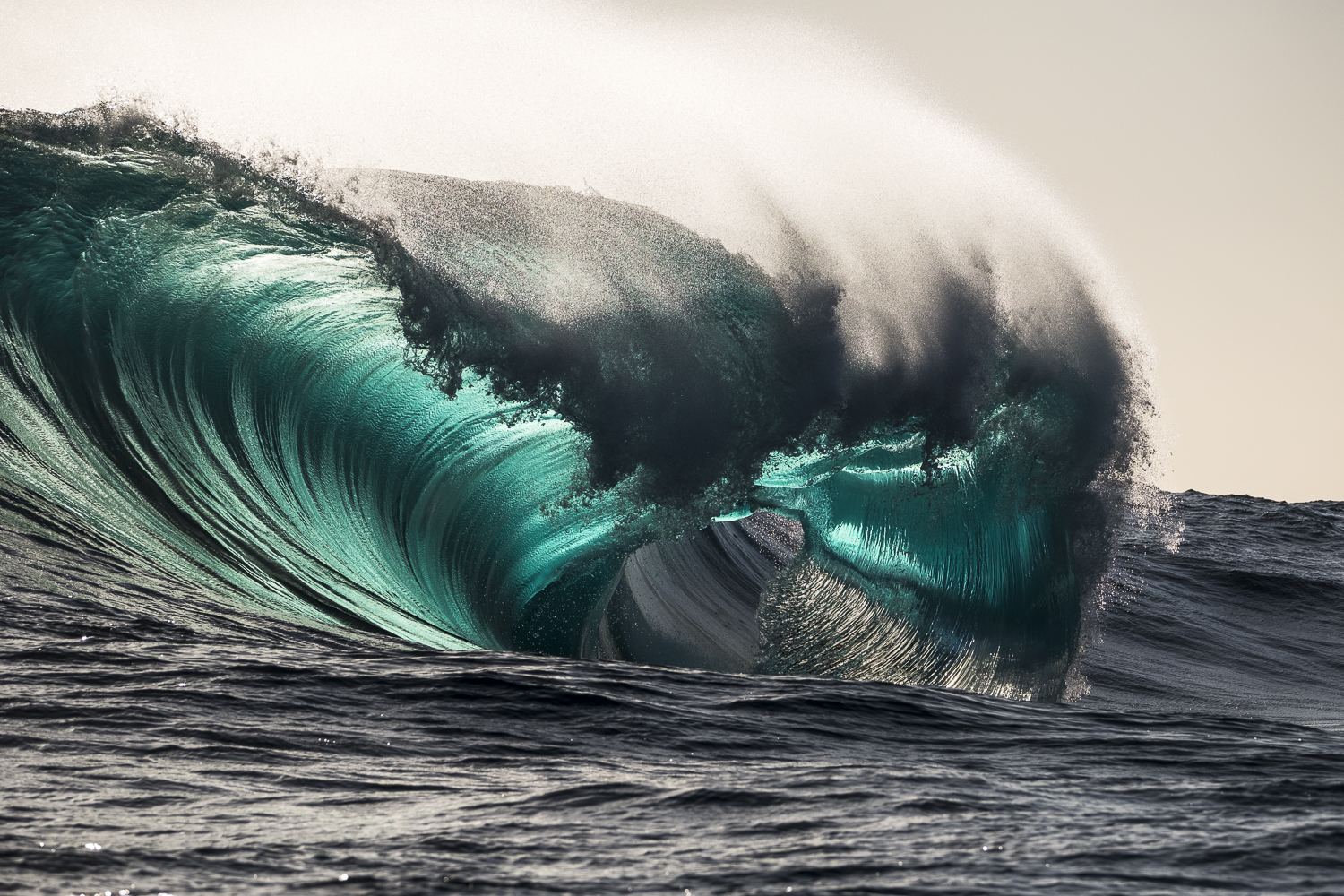
Fuji X-T2 . Fuji XF100-400mmF4.5-5.6 @147,90mm . f/5.6 . 1/5000″ . ISO 250
In the water obviously you can’t review the photos in the back screen of your camera, but have you already had those moments that immediately after the click you knew exactly that you had nailed that shot?
Being in the water is like having a moment yourself, you feel all the elements the ocean provides, this is what I love about surf photography, I know when I have been in a great position to take an image based on those feelings.
Speaking of a bit of equipment now, you’ve certainly witnessed a huge technological transformation since you started. What did you initially use and what reasons led you to use Fuji equipment these days? What’s your current cameras and lenses setup?
My first Fuji camera was easily half the size of my typical setup, and it wasn’t until I decided to use it capturing my lifestyle work and how people’s reaction or more importantly the lack of reaction to the camera, that I quickly realised how important this tool was going to be in my work. Having in hand an unintrusive sized X100 allowed me to capture people’s stories in a far more natural way, had me doing a complete change over in equipment (the first time I have ever done this in my career). A lot of my work/passion comes from “projects of purpose”; environmental, humanitarian, educational, The art of giving, such as the Wunambal Gaambera People / Uunguu Rangers in the far north of Western Australia. (See more here: https://vagabondcontentdivision.com/projects-with-purpose/) the Fuji’s are perfect for this work.
Cameras: Fuji X-T2, X-H1, X-T3, X100F
Lenses: 16mm F1.4, 35mm F2, 56mm F1.2, 90mm F2, 23mm F1.4, 60mm Macro F2.8, 50-140mm F2.8, 100-400mm F4.5-5.6, Zeiss Touit 12mm F2.8
Waterhousings: Aqautech to suit the cameras and a number of primes lenses.
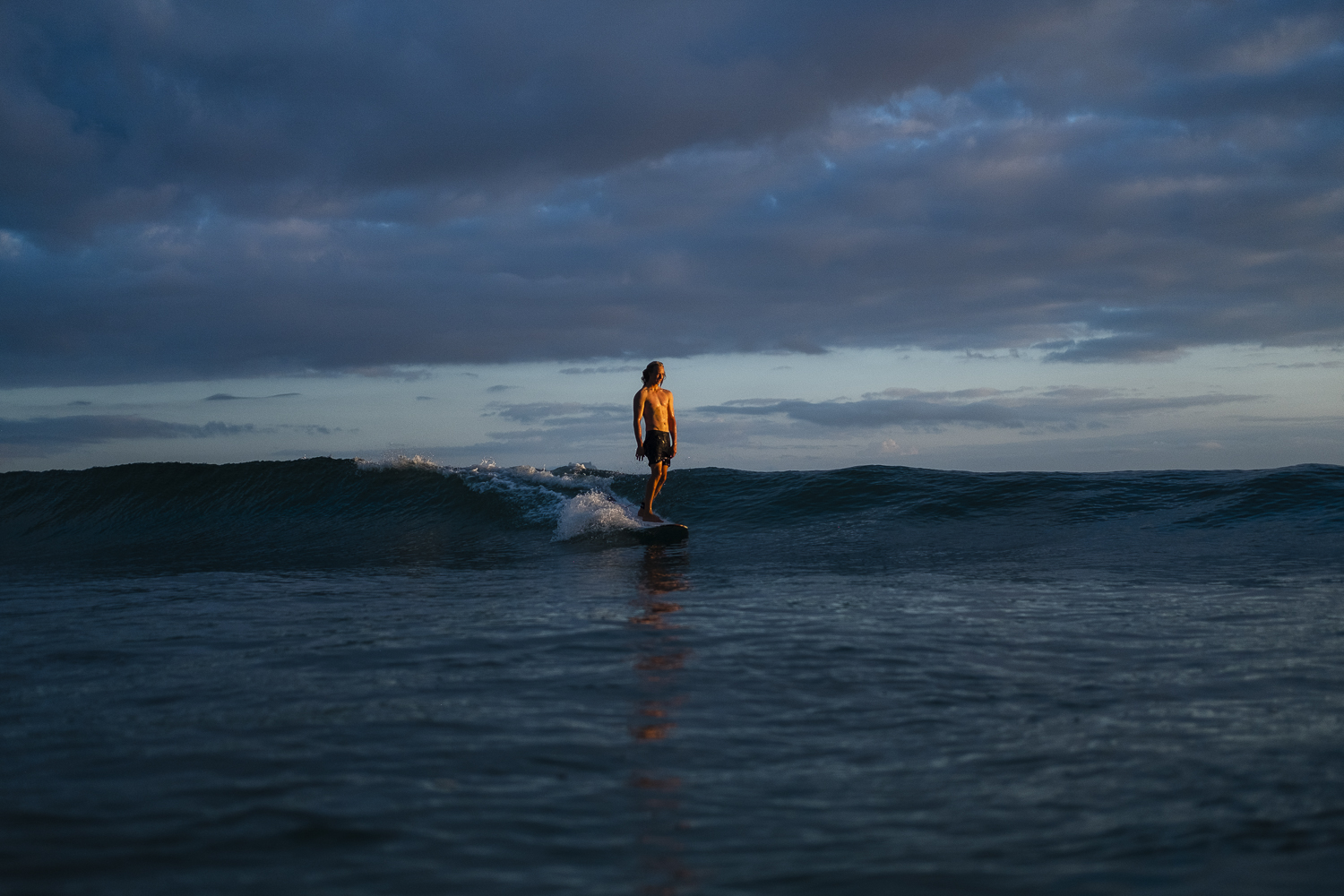
Fuji X-T2 . Fuji XF35mmF2 . f/2 . 1/5000″ . ISO 200
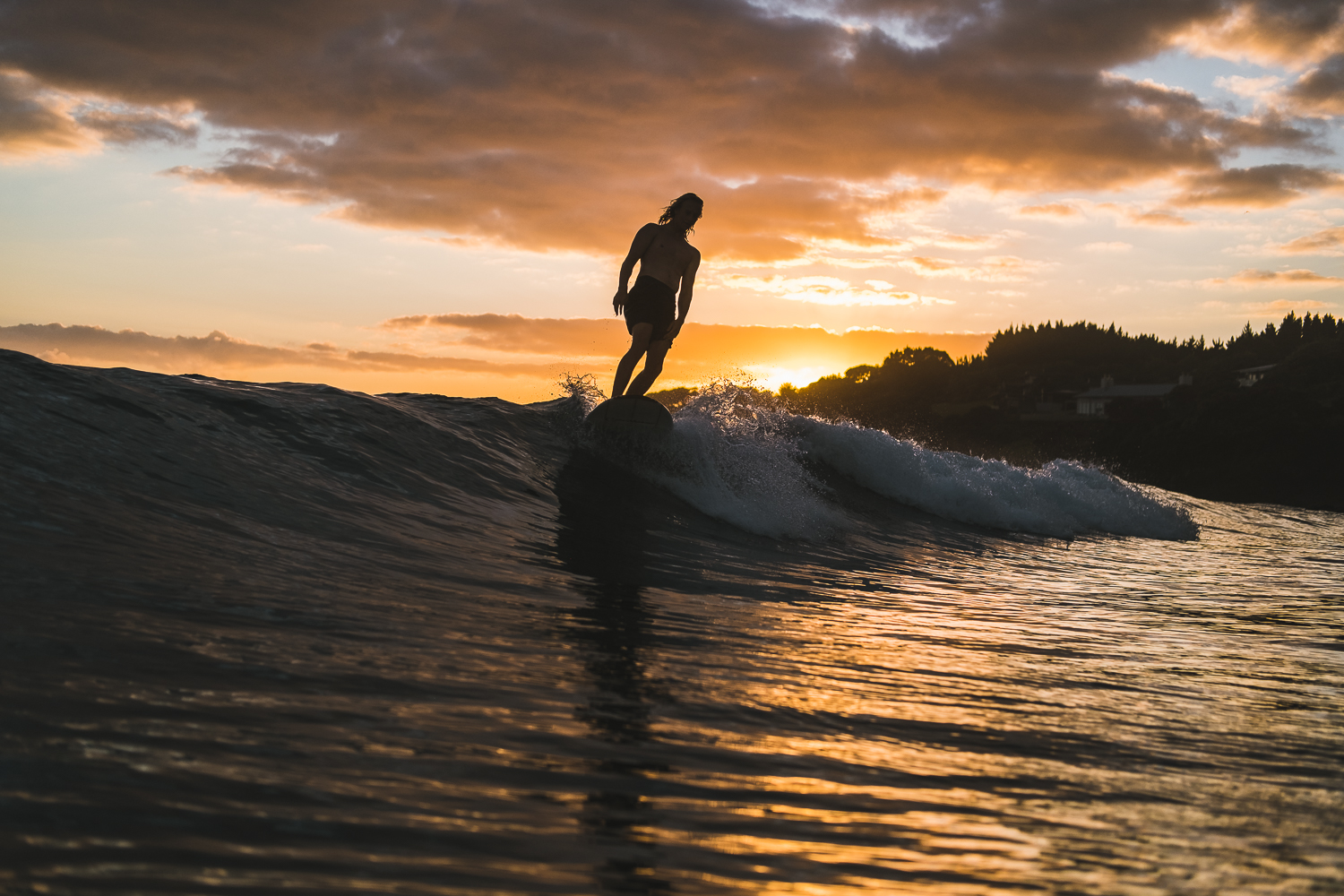
Fuji X-T2 . Fuji XF35mmF2 . f/2 . 1/3200″ . ISO 200
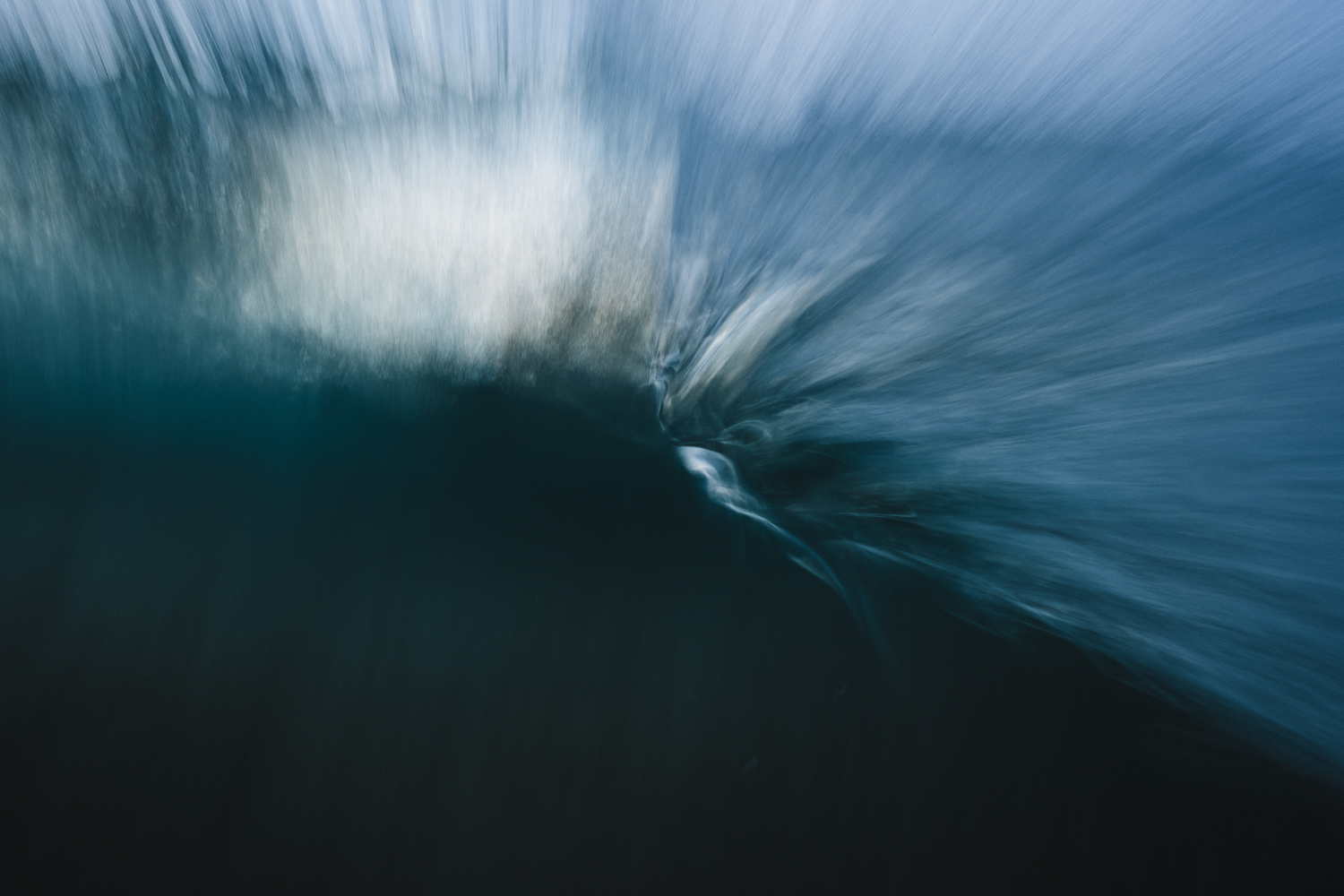
Fuji X-H1 . Carl Zeiss Touit 12mmF2.8 . f/8 . 1/20″ . ISO 200
Failing a photo that would be one in a million can be really frustrating. Being the Fuji X-System relatively recent in the market compared to other brands that for decades worked in the professional segment, when you enter the water with your Fuji are you confident that it will not fail you?
I don’t get caught up in the equipment debate, I justify all my purchases, I know my client’s needs, and know what I need to get the job done while enjoying photography at the same time. Photographers take amazing images not the camera, and I have never said to myself I would have made a better picture if I this or that, the Fuji has fired/triggered every time, so job done.
Has your keeper rate changed since you started using Fuji?
To be honest, it’s still the same, because I started in the film days, I could not afford just to fire away, film and developing is expensive, so I tend to take that same mentality into my work now. I will still shoot film now and then to remind myself that it’s important to think before pressing the trigger, what is the reason behind this image, does the picture tell a story etc.
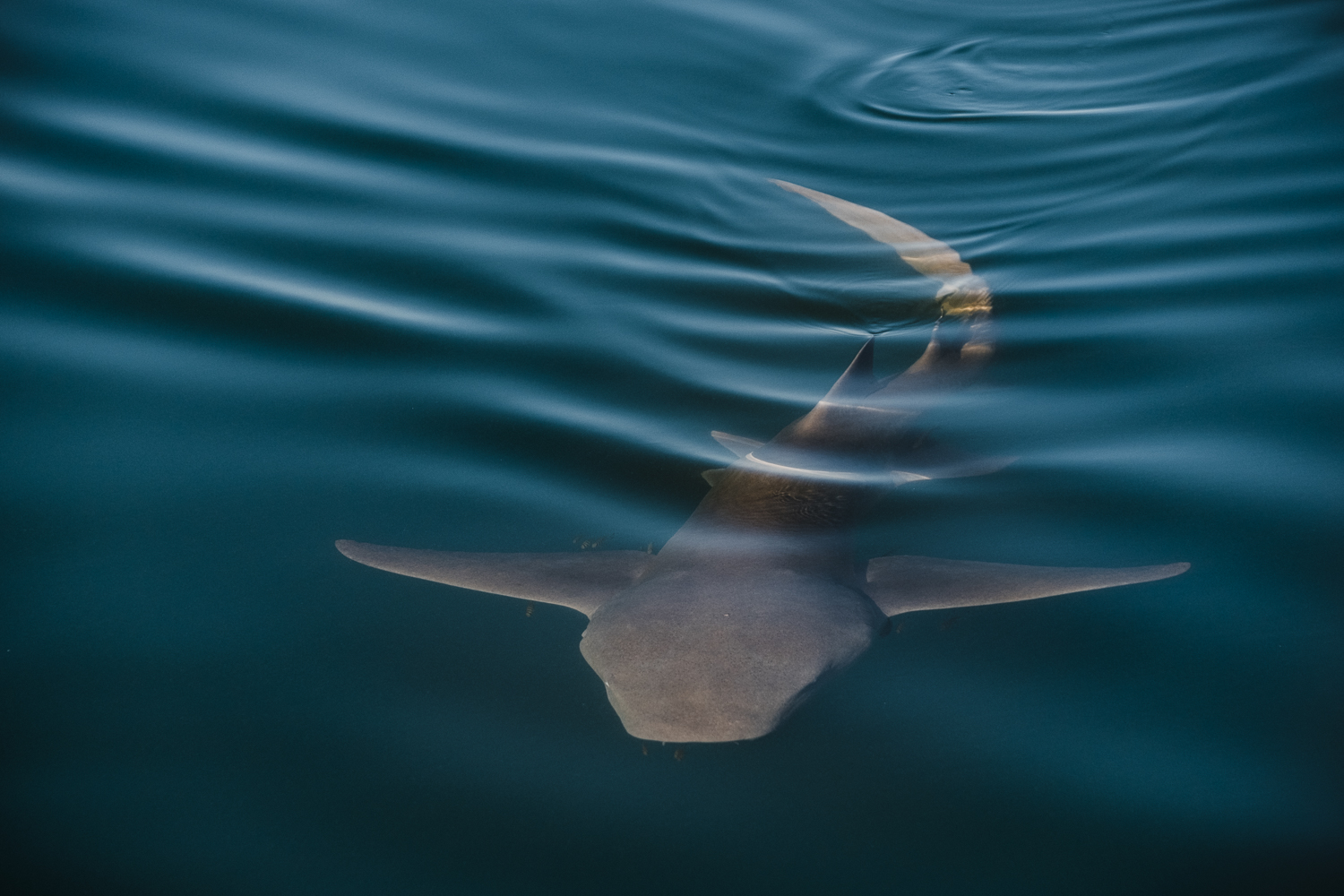
Fuji X-Pro2 . Fuji XF50-140mmF2.8 @102,20mm . f/4 . 1/2000″ . ISO 320
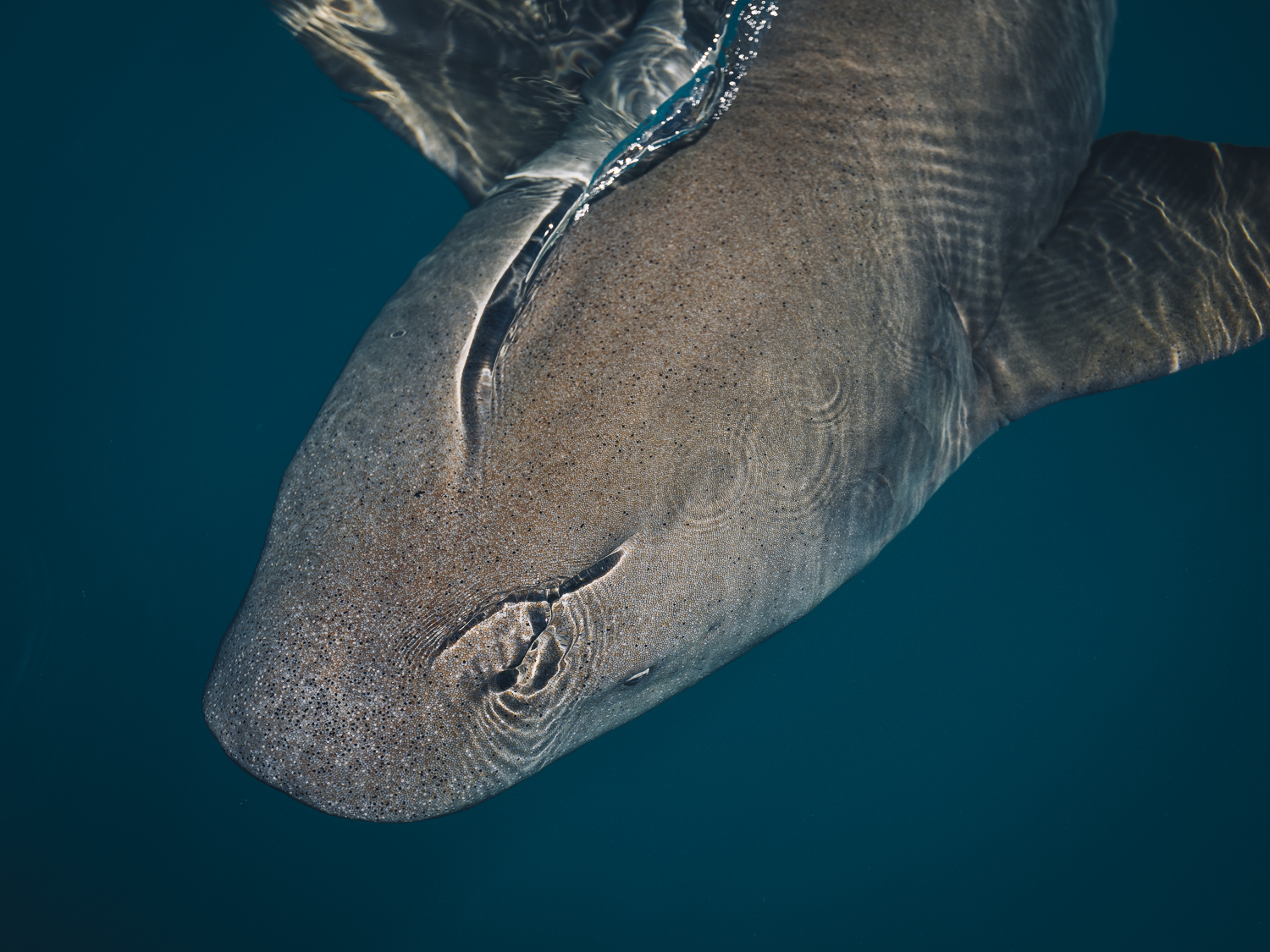
Fuji GFX 50S . Fuji GF120mmF4 . f/4 . 1/2000″ . ISO 100
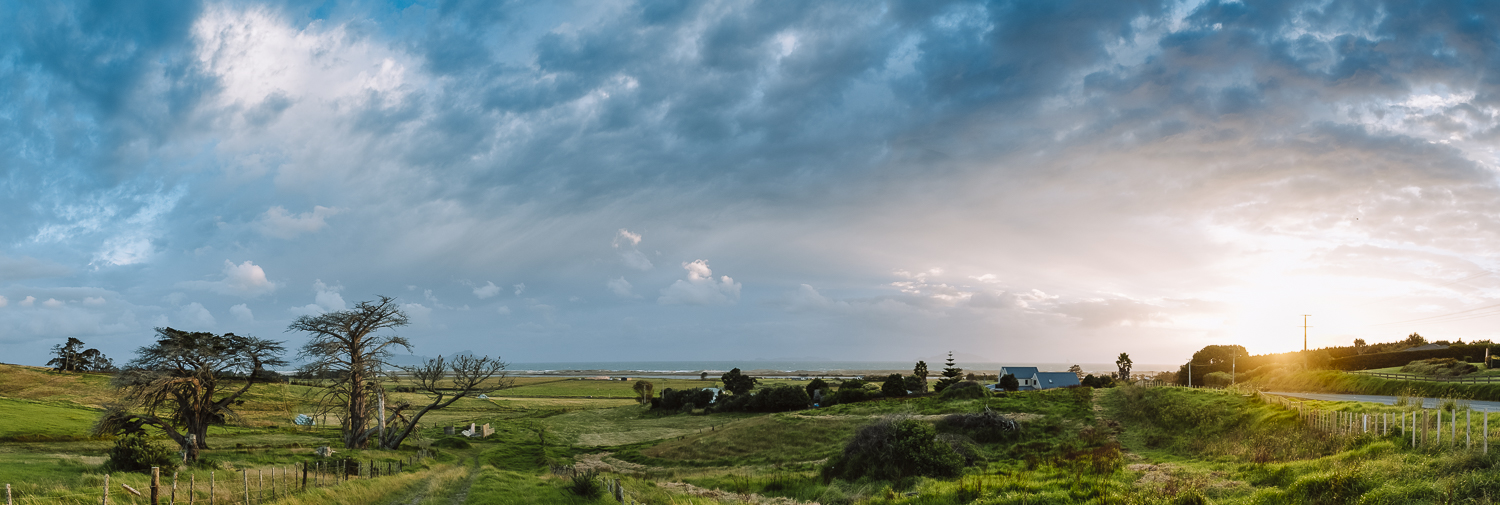
Fuji X-T2 . Fuji XF16-55mmF2.8 @16mm . f/3.6 . 1/320″ . ISO 320
Many thanks Russell for all your availability. Would you like to leave some last words for our readers?
The best thing about photography is meeting incredible people; I truly get inspired by peoples backstories and having as many new experiences as I possibly can in my lifetime. Be patient, learn your craft and don’t get caught up in the perception of the social media photography world.
WATCH THE MOVIE
JOIN US! SUBSCRIBE TODAY THE FUJI X PASSION MAGAZINE
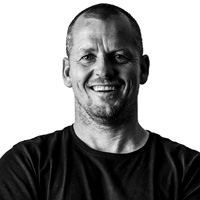
From Rugby League player and Fireman to award-winning Ocean and Lifestyle photographer, Russell Ord found his passion through adventure and the discovery of the untouched/unseen wilderness. Russell’s photos blend the environment with real-life storytelling, his work has been published in magazines and books throughout the world, was awarded the 2016 IPA International Sports Photographer Of the Year at the prestigious Lucie Awards and exhibited in Germany at Photokina 2016 and Tokyo Japan 2017 for FujiFilm.
His life and work has been the subject of the documentary “One Shot” which was broadcasted nationally by the ABC in a seven-part art series and internationally through Film festivals and Garage Entertainment. (www.oneshotdoco.com). “It’s more than just moments in time, it’s about the connection with people and the environment, creating content that reflects this very essence” – Russell Ord.

